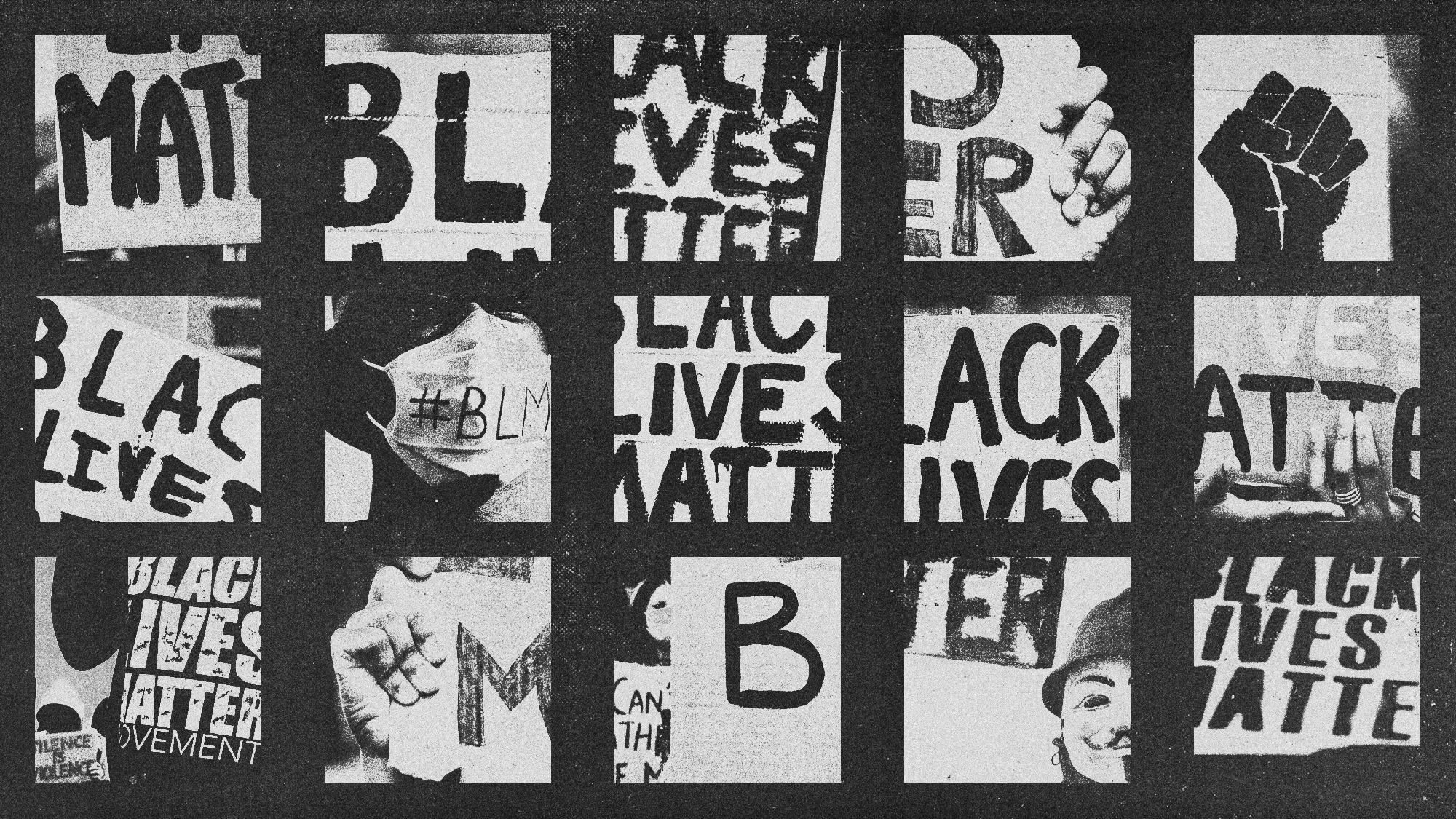The legacy of Black Lives Matter
Five years on from the death of George Floyd, the impact of the Black Lives Matter movement has been mixed

A free daily email with the biggest news stories of the day – and the best features from TheWeek.com
You are now subscribed
Your newsletter sign-up was successful
Five years on from the killing of George Floyd by a US police officer, a new BBC documentary examines how and if the world has really changed since that seismic event.
While "Backlash: The Murder of George Floyd" recounts the shocking killing caught on camera, its bigger aim is to assess the impact of the subsequent Black Lives Matter (BLM) movement on racial inequality, both in the US and in the UK and beyond.
What is BLM?
BLM rose to global prominence in the wake of George Floyd's killing in 2020, but the organisation was formed years earlier, following the acquittal of George Zimmerman in 2013 for the fatal shooting of Black teenager Trayvon Martin.
The Week
Escape your echo chamber. Get the facts behind the news, plus analysis from multiple perspectives.

Sign up for The Week's Free Newsletters
From our morning news briefing to a weekly Good News Newsletter, get the best of The Week delivered directly to your inbox.
From our morning news briefing to a weekly Good News Newsletter, get the best of The Week delivered directly to your inbox.
The movement was founded by Alicia Garza, Patrisse Cullors and Opal Tometi, with the goal of "ending state-sanctioned violence against Black people". Although often described as if it were a single organisation, BLM is decentralised, with no hierarchical structure; a deliberate choice, it says, to "create a network" and "support the development of new Black leaders".
The movement reached the height of its influence in the protests following Floyd's murder, with millions joining its cause and "donations to BLM-related causes" amounting to billions of dollars, according to The Economist.
What were the objectives of the protests?
By mid-2020, "up to 26 million Americans are thought to have protested at more than 4,700 demonstrations", said The Telegraph. Hundreds of thousands did the same in the UK.
The objectives were largely focussed on police violence against Black people and greater accountability for law enforcement. Many of the protests involved the rallying cry "defund the police", a call to divert money from law-enforcement budgets to fund social programs that have a long-term impact on the root causes of crime.
A free daily email with the biggest news stories of the day – and the best features from TheWeek.com
Particularly outside in countries outside the US where police killings are less frequent, solidarity protests often broadened their scope to draw attention to a wider systemic racism and pervasive inequalities in areas like healthcare, education, employment and housing.
Have things changed in the UK?
Statistics on the lasting impact of the BLM movement "paint a mixed picture", said The Guardian. There is evidence that "racial disparities in policing have also recently narrowed" in many regards, but Black people remain the ethnic group most likely to experience police violence and to be arrested. Likewise, Black people are still far more likely to face prosecution than white people, while disparities in education and employment remain.
And while some inequality statistics have been improving since 2020, there has also been a level of political and ideological backlash against the movement, and there is a sense that tangible change has not been made. Since 2020, the UK has experienced race riots, a widening left-right political divide, and growing rejection of diversity, equity and inclusion. The impact of BLM appears far less powerful than at its peak.
What about the US?
A 2025 survey by the Pew Research Center suggests Americans are still sceptical of real change, with 72% saying the greater focus on racial inequality following Floyd's death has not improved the lives of Black Americans. The survey also said that only 11% of Black people thought relations with the police were better, while support for BLM has dropped from 67% to 52% since 2020 among all Americans. Half of US adults report feeling "exhausted" by discourse over racial issues.
Much of that data came before Donald Trump's large-scale regression and eradication of many progressive policies, including Diversity, Equality and Inclusion (DEI) and affirmative action.
However, despite the "conservative backlash", a study conducted by King's College London suggests that the BLM protests "shifted people’s beliefs about racial inequality" and caused an overall "progressive shift in voting behaviour".
Much of that data came before Donald Trump's large-scale regression and eradication of many progressive policies, including DEI and affirmative action.
However, despite the "conservative backlash", a study conducted by King's College London suggests that the BLM protests "shifted people’s beliefs about racial inequality" and caused an overall "progressive shift in voting behaviour".
Richard Windsor is a freelance writer for The Week Digital. He began his journalism career writing about politics and sport while studying at the University of Southampton. He then worked across various football publications before specialising in cycling for almost nine years, covering major races including the Tour de France and interviewing some of the sport’s top riders. He led Cycling Weekly’s digital platforms as editor for seven of those years, helping to transform the publication into the UK’s largest cycling website. He now works as a freelance writer, editor and consultant.